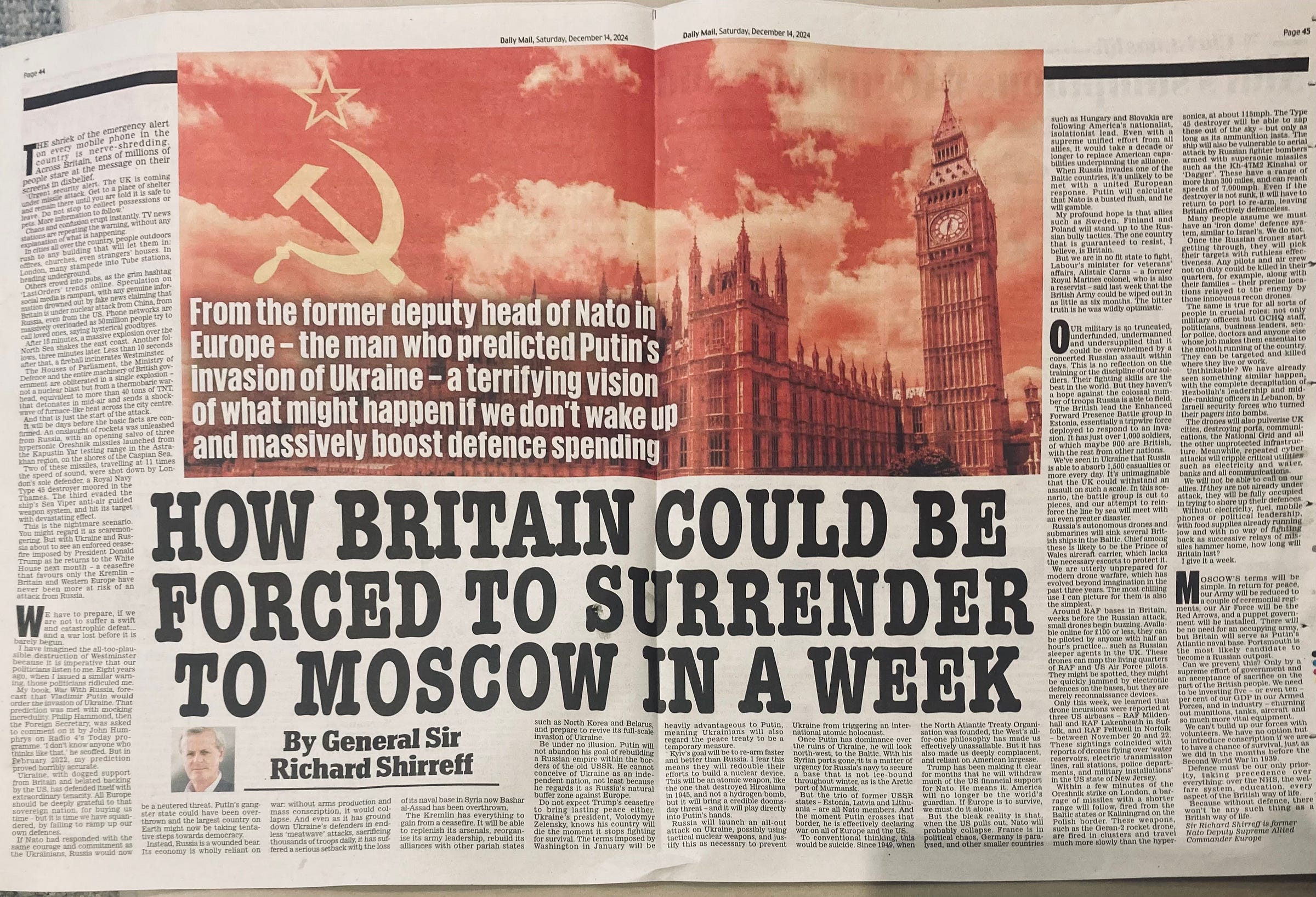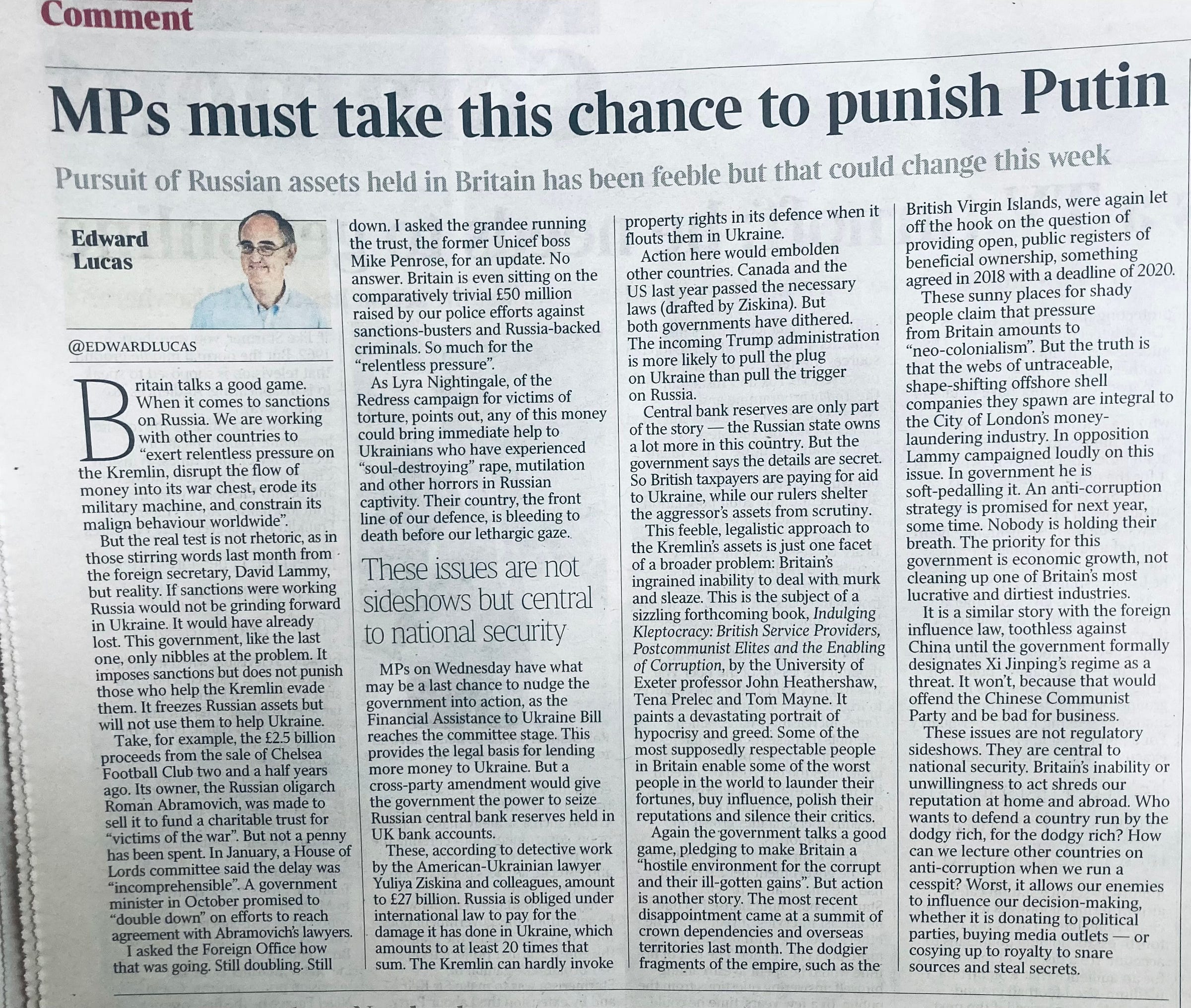Gaslit
Empty Western promises, looming threats and impending war
I’ve been visiting Estonia for nearly 35 years. My most recent trip late last month was the saddest.
“We’ve been gaslit. Nobody’s coming to help. We’ll be fighting alone.”
That was the bleak assessment of a friend who has spent his whole adult life in his country’s defence and security structures.
It’s bad enough to walk through the cosy, Christmassy-cheerful streets of the Old Town between meetings with people who seriously believe war is coming. Whatever happens in Ukraine in the coming months, a drubbing for Russia now looks almost impossible. As I wrote in “Too little, too late”, Putin has already won the wars that matter. He’s shown that nuclear blackmail works. And he’s shown that the West’s willpower is fragile. He’ll be back for second helpings.
Worse is that, seen from the frontline, Nato is over too. Nobody I spoke to believes that the alliance can act speedily and decisively enough if Russia launches a land-grab or an intense sub-threshold operation.
The remaining question is whether other coalitions could fill the gap. A lot rides on the Joint Expeditionary Force summit taking place in Tallinn. That 10-country, UK-led Nordic-Baltic coalition (plus the Dutch) comprises the most threat-aware and capable countries in Europe. If they can’t do it, nobody can.
I chaired a meeting (video) at RUSI to launch a new report (pdf) on the JEF which says without action, it will atrophy and Britain’s influence in the region will shrivel. I also wrote a blistering piece in the Times about the UK’s failure to fulfil its leadership role.
In half-a-dozen trips round the region in recent weeks, I’m really struck by the increasingly caustic tone used to discuss British shortcomings.
“Brilliant, at talking and parades”.
“World champions in over-promising and under-delivering.” .
“England had more artillery pieces in the 1400s,” (a retired general)
“We have enough ammunition for three months. you have enough for three days,” (a Finn.)
These are people with lifelong connections to Britain: alumni of Sandhurst, the Royal College of Defence Studies, Chevening scholarships, King’s College War Studies. They believed in Britain. Some of them bet their careers and their country on us. And now they are having second thoughts.
One reason is that Britain itself is so defenceless. My friend (General Sir) Richard Shirreff wrote a sizzling piece in this Saturday’s Daily Mail about this (view in “reader mode” in Safari to get round the paywall. The main problem: no air defences. This blasts a hole in any deterrent umbrella we offer our allies. Why would we go to war to defend them if it risks British cities being pounded into rubble?
I’ve also been writing about the “gray zone”, with a two-pager for the Times, and then for the CEPA thinktank in DC.
Key points.
The real target is not our infrastructure, institutions, individuals, transport and energy networks. It’s our decision-making. (read more here)
Rebuilding defences will take too long. We need new, inventive deterrent responses (examples here).
Doing nothing — for example in the naval standoff over the Chinese cable-cutting Yi Peng 3 — is risky. (read why here)
The most important thing is to help Ukraine, for example by seizing Russia’s frozen central bank assets. MPs have a chance to do that on Wednesday. I’ve been working on getting cross-party support for this.
It’s not all bad news. The downfall of the Assad regime in Syria will rattle the Kremlin. Change seems impossible until it happens, and then it looks inevitable.
I wrote about this for CEPA and then for the Daily Mail.
Finally, a few quick plugs for excellent English-language updates from Lithuania, Slovakia and Goulash from the sizzlingly good VSquare.
Best regards, Edward
PS. Please subscribe if you can — every penny goes towards supporting my research and campaigning.




